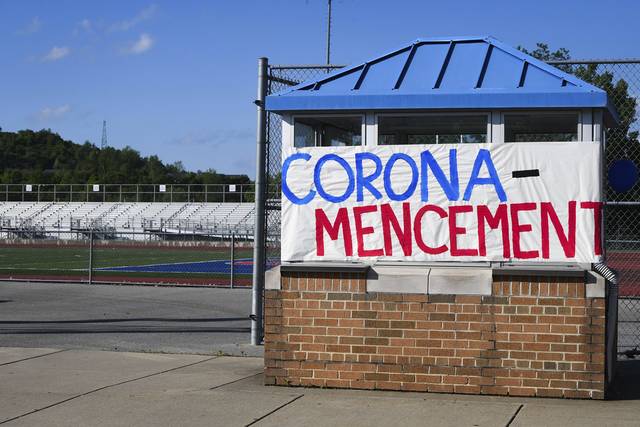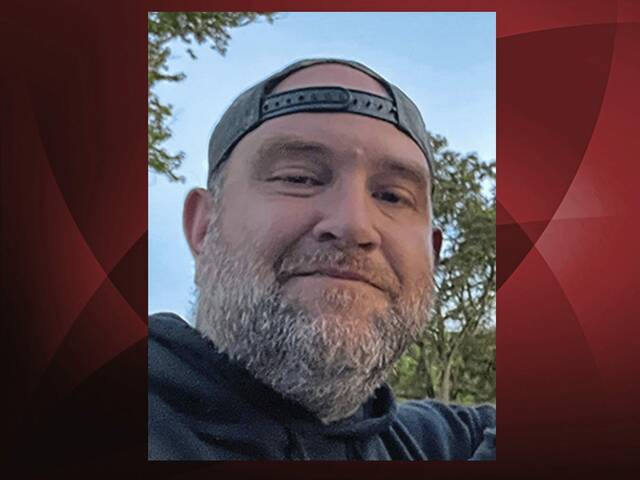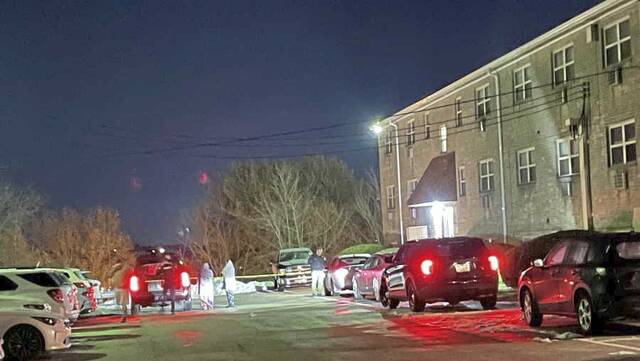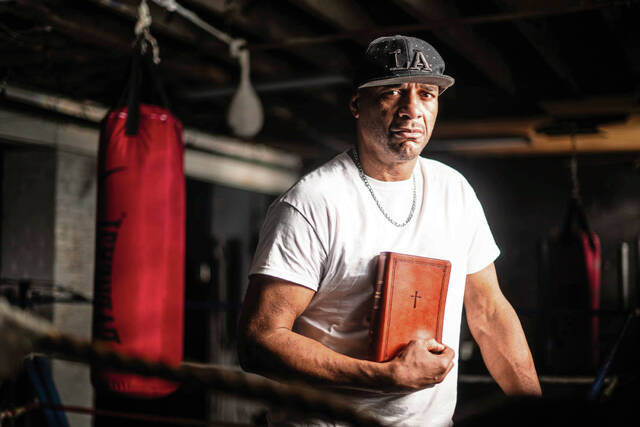In a normal year, “summer melt” impacts many high school graduates, who in the spring intended to go to college but don’t quite make it come fall.
This is particularly true for those of lower socioeconomic status, said Kelli Canonge. She is convinced it will be worse in 2020 — a year that has been anything but normal for students who finished their studies and graduated amid a pandemic.
As a Penn State Talent Search Counselor at Valley High School in New Kensington, Canonge helps first-generation and low-income students enroll in post-secondary education of some kind. She has seen far fewer students to help this year and thinks that will mean fewer will start college next semester — largely due to difficulties presented by the coronavirus and its continuing impact.
Roughly half of Class of 2020 graduates have changed their post-high school plans due to covid-19, according to a national survey of 1,000 high school seniors conducted by Wakefield Research for Junior Achievement and Project Management Institute’s Educational Foundation.
Canonge, 38, of Harrison has been working through the summer to assist grads who want to go to college but don’t have any family members to help them through what can be a tedious process. Canonge called this lack of socioeconomic opportunity the “summer melt” — the gap between enrollment numbers in May and the actual number of students who show up to college in the fall.
This phenomenonhas become more prevalent during the coronavirus pandemic. For example, higher-income students are more likely to have all forms, deposits and shots prepared than students from families with less means, according to Canonge.
After schools closed in mid-March and moved to online distance learning, parents couldn’t be assisted in person with completing Free Application for Student Aid (FAFSA) forms and other materials. That led to lower rates of FAFSA completion across states — including nearly 6% in Pennsylvania compared to this time last year, according to the National College Attainment Network.
“At Valley, rates were down 20-30%,” Canaonge said.
Canonge said she tried to have Zoom sessions with parents and students, but results weren’t what she hoped because personal financial information can’t be shared over the internet and screen sharing was prohibited.
“We need parents’ financial info to complete that process and if we can’t get that from parents, extending enrollment dates and other perks [colleges are offering] are not necessarily catching the neediest audiences,” Canonge said.
These challenges led many graduates to opt for a gap year or choose not to pursue a college education even though they are capable.
Out of the students who indicated that their post-graduation plans have changed on the survey, 36% are working for money, 32% have delayed starting college and 16% are switching career plans for this coming fall.
“We really wanted to get an idea of how much covid-19 had an impact on the Class of 2020,” said Ed Grocholski, Junior Achievement’s senior vice president of brand. “It’s entirely possible that colleges will see an impact on enrollment because of the [survey] findings and the broader impact of covid-19.”
Another survey from Cirkled In, a student portfolio platform, found that nearly 90% of college and university officials who responded expected to see “a higher-than-normal melt in the fall,” Education Week reported in April.
Changing experience
Grocholski believes the college experience may drastically change, particularly with the need for social distancing and online courses come fall.
“(The data) shows that colleges have a lot of young people dealing with financial hardships on the home front,” he said. “The recent high school graduates are really thinking about this a lot and may not be sharing these concerns with parents or caregivers.”
Survey results showed that out of 40% of graduating seniors who indicated that they work, almost half said they or their families rely on that income for living expenses.
Alexandrea Guy-Bing, a recent Valley High graduate, has experienced the financial impact of the pandemic and has some concerns about attending college this fall.
“My job was temporarily closed, and I had to sign up for unemployment,” the 18-year-old Arnold resident said. “Because there are so many people signing up, I still haven’t received (unemployment compensation).”
Guy-Bing will attend Eastern Michigan University in the fall as a pre-law student, majoring in political science.
“My biggest concern is being susceptible to the virus (at college),” Guy-Bing said. “I have older grandparents that live with me, and I could be a carrier and pass it onto them or someone else.”
According to the survey, 35% of seniors planning to attend college are less excited to go because of various covid-19-related concerns.
These include classes and academic quality (58%), dorm life (53%), athletics and school-sponsored events (44%) and dining halls (40%).
Jacob McGee, a recent Hampton High School graduate, is concerned with campus life and quality of education when he attends Allegheny College in Meadville this fall to double major in theater and economics.
“I’m typically a very good student, but I struggled with remote learning because of a lack of interest, quite frankly,” said McGee, 18, of Hampton Township. “People are very hesitant to put thousands of dollars on the line to get more online classes.”
He also is concerned about making new connections and the uncertainty of activities that have large audiences, such as sports.
“Will it be the same college experience that kids are willing and excited to pay for?” McGee asked . “I do know of quite a few students in my class that have question marks as to what’s going to come next year.”
George Sprock, a recent Greater Latrobe Senior High School graduate, switched his post-graduation plans due to the pandemic. He was planning to major in physical therapy at West Virginia University, a program that would’ve taken six years to complete.
Sprock, 18, of Latrobe has “always been good at woodshop” and it’s been a “love that [he’s] always had” and he started looking into becoming a carpenter. After much deliberation, he switched his major to Wood Science and Technology with a focus on wood processing, which is making cabinets and furniture.
Sprock said WVU turned out to be one of the nine universities that offer some sort of woodworking trade school.
“If [the pandemic] wouldn’t have happened, I wouldn’t have had the time to sit and think about it or talk to anyone about it,” Sprock said. “The support that I had from other people made me realize that it was the best choice for me.”
Controlling their future
In order to help students better plan for the future, Junior Achievement and Project Management Institute’s Educational Foundation started two educational initiatives — ‘JA Economic Resources’ website and ‘Project Management 4 All’ online game.
According to the survey, 94% of respondents felt they excel at project management-related traits, such as problem-solving, teamwork, organization and multi-tasking.
“Students are increasingly hungry to make an impact and few careers offer opportunities to make an impact like project management,” said Michael DePrisco, PMI vice president of global experience and solutions. “These skills are growing increasingly important as the world of work becomes oriented around projects.”
Each student and family situation now is different in terms of health and finances, said Ron Suvak, principal of Franklin Regional Senior High School in Murrysville.
“There is a tremendous sense of lost opportunity,” Suvak said. “The danger becomes losing a sense of optimism and losing a sense of future.”
Suvak said he knows of some students whose plans have changed, but he also knows many who are still on “Plan A.”
He spoke of the physical and mental health impact the pandemic had on students and families.
“Initially, there was a sense of hope to return to normalcy,” he said. “As the shutdown progressed and the pandemic continued to impact almost every facet of life, it did not get easier for folks – myself included.”
Students haven’t been able to seek support like they usually might if they had been in school for mental health and for substance abuse and use, Suvak explained.
He said it’s important for 2020 graduates to have an internal locus of control — meaning to personally take control of where their lives go, regardless of what is happening around them.
“I, as a 2020 graduate, have a future and I can control that,” Suvak said. “It’s up to me to get there.”








